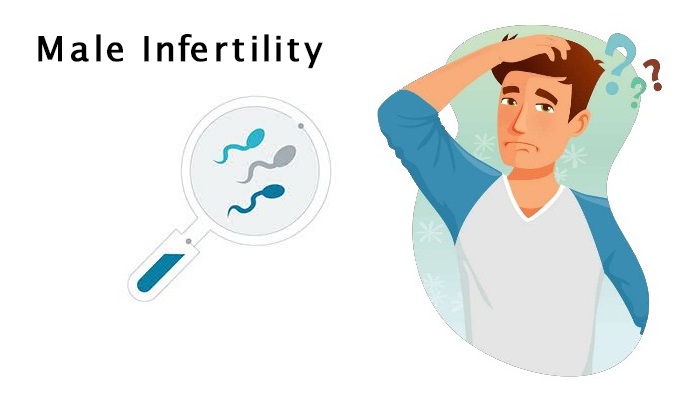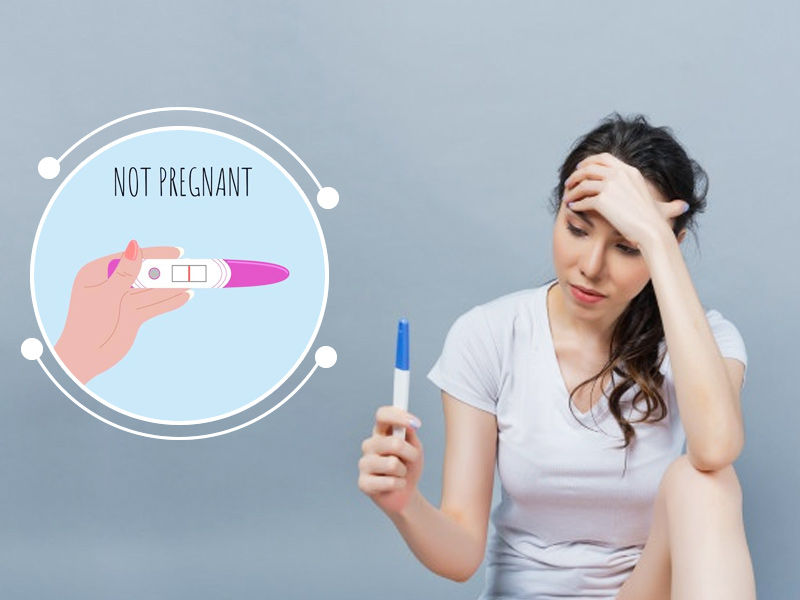nehagoyal022@gmail.com | Posted on
Infertility is a medical condition characterized by the inability to achieve pregnancy despite consistent efforts. Contributing factors may encompass ovulatory irregularities, endometriosis, diminished sperm count, or low testosterone levels. The likelihood of experiencing infertility rises with advancing age.
There are different classifications of infertility:
1. Primary Infertility: This pertains to individuals who have never achieved pregnancy and continue to face challenges after a year of regular sexual intercourse.
2. Secondary Infertility: This refers to the inability to conceive again after previously experiencing a successful pregnancy.
3. Unexplained Infertility: In such cases, comprehensive fertility assessments fail to identify a specific cause for the individual or couple's difficulty in conceiving.
The process of conception involves several crucial steps:
1. The brain must produce reproductive hormones responsible for regulating ovarian activity.
2. The ovary must release a mature egg.
3. The mature egg must be present within the ovary.
4. The fallopian tube must capture the released egg.
5. Sperm must travel through the vaginal canal, navigate the uterus, and reach the fallopian tube.
6. Fertilization occurs when sperm successfully penetrates the egg, resulting in the formation of an embryo.
7. The resulting embryo makes its way through the fallopian tube and implants itself in the uterus.

Also Read- How to Find the Best Infertility Treatment for Male?
0
0 Comment
| Posted on
Infertility means not being able to have a baby even after trying to have one for a whole year without using anything to stop it. It can affect men and women equally, and there are many different causes.
Treatment for infertility depends on the underlying cause. Some common treatments include:
- Medications:Fertility medications can help to regulate ovulation, stimulate sperm production, or improve sperm quality.
- Surgery:Surgery may be necessary to correct certain conditions that are causing infertility, such as blocked fallopian tubes or endometriosis.
- Assisted reproductive technology (ART): ART procedures involve combining sperm and eggs outside of the body and then transferring the fertilized embryos back into the uterus. IVF is the most popular way to help people have babies when they find it hard to do so naturally.

0
0 Comment
| Posted on
Nutrition's Influence on Fertility
It is widely recognized that nutrition plays a pivotal role not only in our overall health but also in male and female fertility. Making dietary adjustments can be a positive step towards enhancing fertility. Let's explore the foods that can boost your chances of conception.
Fertility-Boosting Foods
The foundation of a healthy diet can be broken down into two main components: Micronutrients and Macronutrients. Let's delve deeper into these categories.
Micronutrient-Rich Foods for Fertility
Micronutrients constitute the smaller portion of your diet and encompass essential vitamins and minerals that are vital for human health.
1. Vitamins for Enhanced Fertility
Folic Acid (Folate)
Folic acid is a crucial vitamin for women planning pregnancy. It is found naturally in food as folate and is also available in synthetic form as folic acid, commonly used in supplements and fortified foods. Folate is essential for processes like oogenesis, fertilization, and pregnancy, making it a key player in human reproduction. Women should begin folate supplementation when planning pregnancy and continue through early pregnancy to prevent neural tube defects. High folate intake has a positive impact on fertility treatment outcomes, increasing fertilization and pregnancy rates.
Sources of Folate: Green leafy vegetables, fruits, nuts, beans, peas, dairy products, eggs, meat, and seafood. Spinach, yeast, yeast extract, asparagus, and Brussels sprouts contain particularly high levels of folate.
Vitamin D
Vitamin D influences the reproductive process, affecting both egg and sperm quality, ultimately increasing the likelihood of pregnancy.
Iodine
Iodine is a critical nutrient for overall health, particularly before, during, and after pregnancy. Good sources of iodine include milk and dairy products, seafood, and iodized salt.
Macronutrient-Rich Foods for Fertility
Macronutrients comprise the bulk of your diet and include carbohydrates, fats, and proteins.
Carbohydrates
Both the quantity and quality of dietary carbohydrates impact glycemic load and insulin sensitivity. Reduced carbohydrate intake can improve insulin sensitivity and ovulatory function, especially among women with PCOS. Whole grains, rich in phytic acid, vitamins, and selenium, have antioxidant properties and beneficially affect glucose metabolism, potentially boosting fertility. It's advisable to avoid bad carbs, such as bread, cookies, and cakes made from refined flour.
Fatty Acids
Fatty acids play essential roles in reproductive function as precursors to hormones like estrogen and progesterone. Omega-3 fatty acids have been associated with enhanced fertility rates and better embryo quality. Conversely, trans fatty acids have a negative impact on ovulatory function and should be avoided.
Protein
For a healthy adult with minimal physical activity, the daily recommended dietary allowance of protein is 0.8 grams per kilogram of body weight.
Foods That Affect Female Infertility
Certain foods can have specific impacts on female fertility.
1. Animal Protein
Increased meat consumption may have a negative effect on female fertility, and red meat has been linked to lower embryo quality following IVF.
2. Fish
Concerns regarding seafood consumption often revolve around the presence of methyl mercury, which can negatively affect IVF outcomes.
3. Soy
In women undergoing fertility treatments, soy isoflavone supplements have shown promise in improving reproductive outcomes, increasing live births, and enhancing endometrial thickness, as well as improving IUI outcomes.
In Conclusion
Scientific evidence underscores the significant role that a healthy diet plays in fertility outcomes. Foods rich in whole grains, fruits, vegetables (especially green leafy varieties), monounsaturated oils like olive oil, fish, avocados, protein, and eggs have been associated with higher pregnancy rates and improved IVF outcomes.
Conversely, it's advisable to limit the consumption of trans fats (often found in snacks), red meat, and mercury-rich fish. While a healthy diet can enhance the chances of natural conception and fertility treatment success, it should be viewed as a complementary measure rather than a replacement for medical intervention.

0
0 Comment
